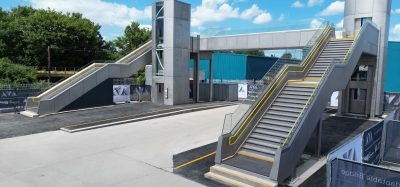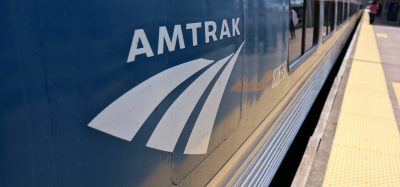CPK presents an investor variant of the new Katowice-Ostrava HSR line connecting Poland with Czech Republic
Posted: 13 April 2023 | Centralny Port Komunikacyjny (CPK) | No comments yet
After collecting 7,000 comments and almost 100 meetings involving residents and local authorities, Centralny Port Komunikacyjny (CPK) has selected the investor variant for the Katowice-Ostrava section of the high-speed railway line. The route indicated by CPK assumes the least environmental impact of all those surveyed. The new railway line also means the end of the exclusion for Jastrzębie-Zdrój.
Selecting the optimum option for this section was a design challenge. The construction of any high-speed rail network requires compliance with strictly defined technical parameters (related among other things to track geometry). Meanwhile, there are numerous areas of mining damage and natural value in this region of Poland. Planning is also hindered by extensive urban areas and the proximity of the A1 motorway.
As a recommended variant, the CPK experts indicated the W72, which provides for the construction of new railway stations in Żory Północne and Mszana, the possibility of creating an intermodal terminal in Wodzisław Śląski, an additional section connecting Wodzisław Śląski and the centre of Jastrzębie-Zdrój, and new sections enabling quick connections between Rybnik and Żory with Katowice and the rest of the country.
The CPK project ensures the inclusion of Jastrzębie-Zdrój, a city with a population of 90,000, the largest in Poland without access to the railway network. New railway stations and stops are to be built, such as Jastrzębie-Zdrój Centrum and Zachód. In this way, we can make up for the unfinished investments of the last decades. Thanks to the CPK investments in Śląskie, the railway transport is available to more than 3.5 million inhabitants in the region, including Jastrzębie, Żory, Rybnik and Wodzisław,” says the deputy minister for funds and regional policy, Marcin Horała, government plenipotentiary for CPK.


The CPK investments in the Śląskie Voivodship enable a significant reduction in travel times. Passengers will be able to travel from Katowice to Jastrzębie Zdrój in 50 minutes by regional train or in 35 minutes by fast train, as there is no such connection today. The train journey to Katowice from Rybnik will take 25 minutes (currently more than twice as long), and from Wodzisław Śląski in approximately 40 minutes (today more than one hour). It should take about 20 minutes to get from Żory Północne to Katowice by train, and about 15 minutes from Wodzisław Śląski to Jastrzębie Zdrój, as currently there are no such connections at all.


The Katowica-Ostrava section is not only an important railway investment in the Śląskie region, but also part of the Trans-European Transport Network (TEN-T), which will ultimately connect Katowice, Krakow and Warsaw with Brno, Prague, Bratislava, Vienna and Budapest. Our investment is of a cross-border nature and is closely coordinated with the investment activities of Správa železnic, our Czech partner,” says Mikołaj Wild, CEO of CPK.
The Katowice-Ostrava railway line, as part of the V4, will contribute to the growing importance of the Upper Silesian Industrial Region, making it an important transport hub in the Three Seas region and providing fast connections to most major cities in Central and Southern Europe.


Taking into account the comments of residents was a priority for CPK. Since February 2020, within the framework of the Strategic Location Study and the two consultation phases of the Feasibility Study, the CPK representatives have organised 98 meetings with residents and local authorities.
The purpose of the feasibility study for the Katowice-Ostrava section was to analyse the options taking into account numerous criteria, including technical, operational, economic, social, environmental, terrain and land use. The indicated variant, W72, ensures that the CPK design assumptions of a maximum speed of 250km/h and reduced travel times can be maintained, and at the same time it means the least demolition of the four routes finally considered and has the least impact on ecological corridors and animal migration routes.
The CPK railway programme envisages the construction of 2,000km in new lines (10 CPK spokes) and is a response to more than 30 years of almost total downtime in this area of Poland. Feasibility studies are either ready or being prepared for 1,500km of these lines, and the design phase is already underway for the Warsaw–Łódź and Łódź–Wrocław sections.
The new lines are to be used primarily for long-distance trains, including high-speed trains (with a maximum operating speed of 250km/h and the possibility of raising this to 350km/h in the future), as well as by regional trains and, on selected sections, by freight trains. The key Warsaw–CPK–Łódź section is to be launched simultaneously with the first stage of the CPK Airport.
Paid promotion by Centralny Port Komunikacyjny (CPK).








